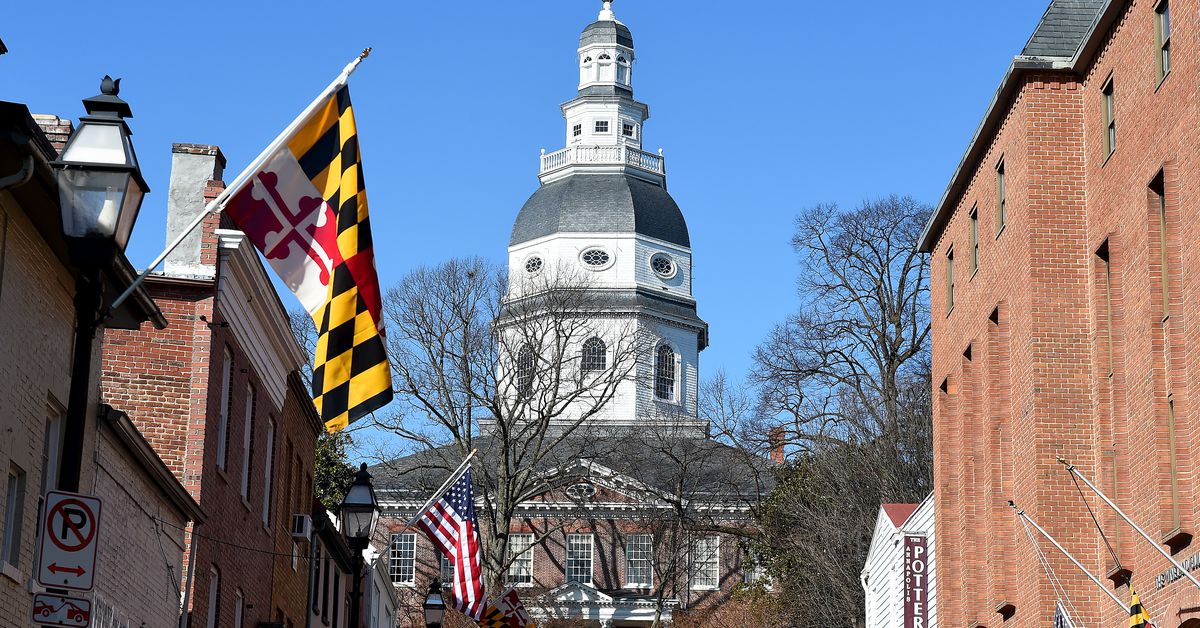
Maryland lawmakers passed a package of sweeping police reform bills which narrow the capacity of police to use force and expand accountability for their misconduct, in part by doing away with the state’s powerful and first-in-the-nation Law Enforcement Officers’ Bill of Rights passed in 1974.
Maryland’s Democratic-controlled legislature passed the bills over the objections and vetoes of Republican Maryland Gov. Larry Hogan, and the legislative package is being hailed by Democratic lawmakers and police reform advocates as a significant step toward a more progressive criminal justice system in the state.
“Last year, I attended and participated in multiple demonstrations of people demanding change — the young and the old, people of all races and walks of life,” Maryland Sen. Charles Sydnor, a Democrat who sponsored one of the measures, said, according to the Baltimore Sun. “With so many situations being thrust before our eyes, we could no longer deny what we see, and I thank my colleagues for believing their eyes and listening to the majority of Marylanders.”
The new laws cover a wide range of policies and include restricting no-knock warrants, mandating body cameras, prohibiting police officers from preventing civilians from recording them, and banning sentences of life in prison without possibility of parole for juveniles.
As the New York Times reports, there are also new guidelines designed to raise the bar for police use of force:
One section creates a new statewide use-of-force policy and says that officers who violate those standards, causing serious injury or death, can be convicted and sent to prison for up to 10 years. The standard says that force can be used only to prevent “an imminent threat of physical injury” to a person or to “effectuate a legitimate law enforcement objective.”
The policy also says that force must be “necessary and proportional.” Police reform groups said that was a tougher standard than the traditional “reasonableness” standard, which they said was not sufficient for holding officers accountable for blatant acts of violence.
One of the bills repeals the state’s police bill of rights passed in 1974 — the first of its kind in the country, which helped inspire similar laws in some 20 other states. It gave police officers workplace protections well beyond those offered to other government employees by allowing them to, among other things, appeal to a local board without civilian input. The new law which replaces it provides civilians with a role in the police disciplinary process.
Hogan initially vetoed the laws, saying that they went too far and would “further erode police morale, community relationships and public confidence.”
Police unions also criticized the reforms as too drastic. “They’re going to make it tougher for the police to police. There’s reform, and this went beyond reform,” Angelo Consoli, second vice president and legislative committee chair of the Maryland Fraternal Order of Police said, according to the New York Times.
But Democratic lawmakers and advocates for police reform saw it as a long overdue step in the fight against excessive police violence.
“These new laws are a victory steeped in the coordinated efforts of community members and advocates who have worked for police accountability, transparency, and justice,” a statement from the NAACP Legal Defense and Educational Fund said. “This landmark package of bills required hard-fought advocacy and its removal of a number of impediments to police accountability has come after over a decade of rallying for a just public safety system.”
Why repealing the police bill of rights is substantial
Criminal justice activists have criticized police bill of rights laws as serious obstacles to police accountability for decades. As the Washington Post explains, when Maryland passed the very first one in the 1970s, it seemed uncontroversial at the time, but it put in place powerful new precedents for shielding police from accountability for misconduct:
[The law’s provisions] included giving officers a formal waiting period before they had to cooperate with internal inquiries into police conduct, scrubbing records of complaints brought against officers after a certain period, and ensuring that only fellow officers — not civilians — could investigate them.
Experts say that Maryland’s police bill of rights went further than other states in the amount of time it allows officers before being investigated — five days in Maryland versus 48 hours in other states, according to the Post.
This waiting period until the investigation conflicts with US Justice Department guidance, in part because it may give officers more time to conspire and fabricate a story as they prepare to be asked about alleged misconduct.
Maryland’s new law allows for civilian input into the process and removes some of those protections. Per the New York Times: “Civilians will have a role on administrative charging committees that will review the findings of law enforcement agencies and recommend discipline for officers. Police chiefs will not be able to issue disciplinary actions more lenient than the level recommended by those panels.” And the waiting period and record-scrubbing policies are gone.
Still, some activists don’t think the new oversight policy replacing the police bill of rights has gone far enough. Dayvon Love, the director of public policy for Leaders of a Beautiful Struggle, a Baltimore-based think tank, told the Post the new laws were a “net positive,” but ultimately lack a substantive enough community oversight mechanism.
source https://www.vox.com/2021/4/11/22378584/maryland-police-reform-repealed-police-bill-of-rights

Post a Comment